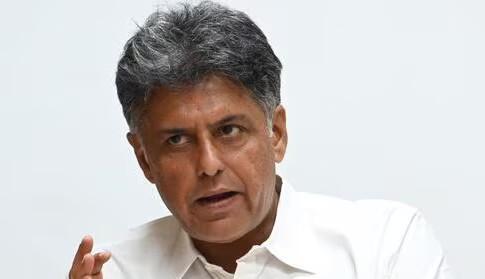
Against Constitution: Tewari on bills to remove jailed PM, CMs
The Indian Parliament has recently witnessed the introduction of three bills aimed at removing Prime Ministers, Chief Ministers, and Ministers who are facing serious criminal charges and are currently in jail. The bills, presented by Union Minister Amit Shah, have sparked a heated debate among politicians and constitutional experts. One of the prominent voices against these bills is that of Congress MP Manish Tewari, who has termed them as “against the basic structure of the Constitution”.
Tewari’s concerns are rooted in the fundamental principles of the Indian Constitution, which emphasizes the importance of the presumption of innocence until proven guilty. The MP stated that the Constitution does not allow for the removal of a Prime Minister, Chief Minister, or Minister based on mere allegations or charges. Instead, it requires a thorough investigation and a fair trial before any action can be taken.
The potential for misuse of state instrumentalities under these bills is enormous, said Tewari. He expressed his fear that these bills could be used to target political opponents and silence dissenting voices. Tewari’s concerns are not unfounded, as the history of India is replete with instances of political vendetta and misuse of power.
The first bill, the Removal of Disqualified MPs and MLAs Bill, seeks to enable the Speaker or Chairman of the respective Houses to remove MPs and MLAs who are facing criminal charges and are in jail. The second bill, the Removal of Disqualified Ministers Bill, aims to empower the Governor of the state to remove Ministers who are facing criminal charges and are in jail. The third bill, the Removal of Disqualified Prime Ministers and Chief Ministers Bill, seeks to enable the President of India to remove Prime Ministers and Chief Ministers who are facing criminal charges and are in jail.
Tewari has argued that these bills are a clear violation of the principles of natural justice and due process. He has also pointed out that the bills do not provide for any safeguards to prevent abuse or misuse. The bills also do not specify what constitutes “serious criminal charges” and how the removal process would be carried out.
The Congress MP has also criticized the government for its lack of transparency and consultation with opposition parties. He has said that the government has not bothered to hold any consultations with the opposition on these bills, and that the bills were introduced without any prior notice.
Tewari’s concerns have been echoed by other opposition parties, who have also criticized the government for its attempt to undermine the Constitution. The Samajwadi Party has said that the bills are an attempt to destroy the democratic process and that they are a threat to the very fabric of Indian democracy. The Bahujan Samaj Party has also criticized the bills, saying that they are a clear violation of the Constitution and that they are an attack on the rights of citizens.
On the other hand, the government has defended the bills, saying that they are necessary to ensure the smooth functioning of the government and to prevent the abuse of power by those who are facing criminal charges. The government has also argued that the bills are in line with international best practices and that they are necessary to restore the faith of the people in the political system.
The debate on these bills is likely to continue in the coming weeks and months. As the country waits with bated breath to see what the future holds, it is essential to remember that the Constitution is the foundation of our democracy, and that any attempts to undermine it must be resisted with all vigor.
In conclusion, the bills introduced by the government to remove jailed PM, CMs, and Ministers are a clear violation of the basic structure of the Constitution. The potential for misuse of state instrumentalities under these bills is enormous, and the government’s lack of transparency and consultation with opposition parties is a grave concern. As the debate on these bills continues, it is essential to remember the importance of upholding the principles of natural justice and due process, and to resist any attempts to undermine the Constitution.






